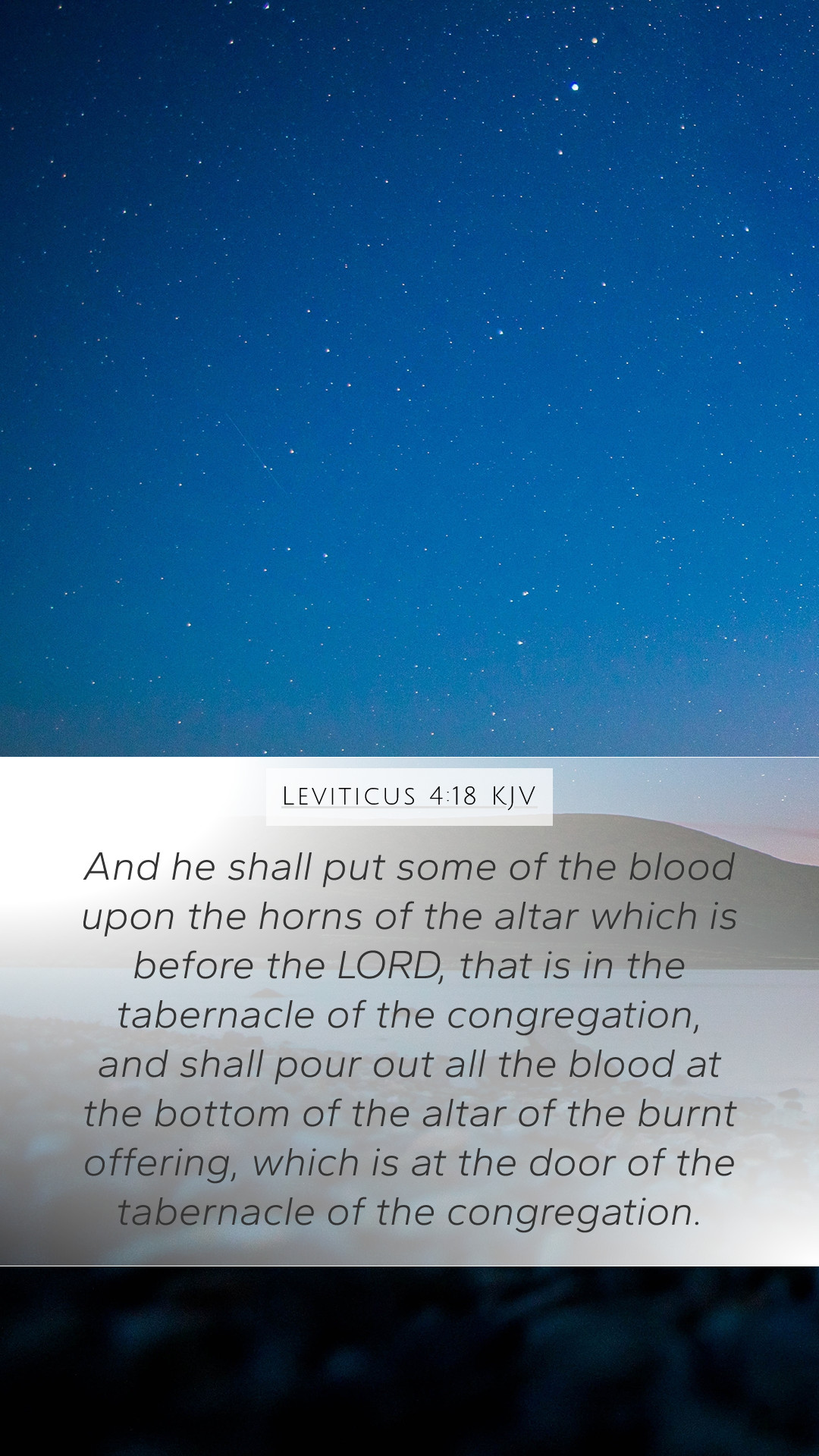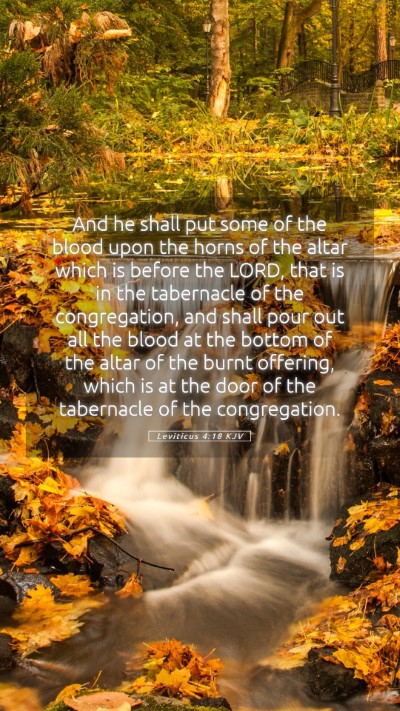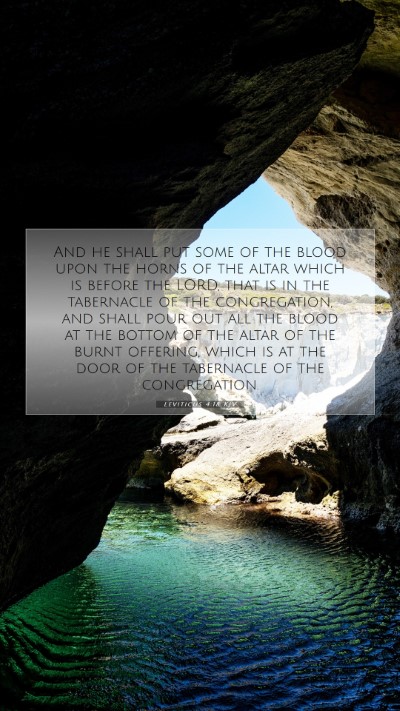Bible Verse Meaning and Commentary for Leviticus 4:18
Leviticus 4:18 states: "And he shall put some of the blood upon the horns of the altar which is before the LORD that is in the tabernacle of the congregation, and shall pour out all the blood at the bottom of the altar of the burnt offering, which is at the door of the tabernacle of the congregation."
This verse pertains to the instructions for sin offerings within the Israelite sacrificial system. It highlights the importance of blood in atonement and the specific rituals necessary for forgiveness and reconciliation with God.
Understanding the Context
The sacrificial system outlined in Leviticus reflects God's holiness and the seriousness of sin. Leviticus 4 deals with various types of sin offerings, emphasizing that sin brings separation from God and requires a sacrifice for restoration.
Matthew Henry notes that these ceremonies signify the need for purification and indicate a process of bringing oneself back into the right relationship with God through acknowledgment of wrongdoing and the offering of a substitute.
Symbolism of the Blood
Blood represents life and, according to Adam Clarke, it symbolizes the seriousness of sin, which demands a sacrifice. It underscores the principle that without the shedding of blood, there is no remission of sins (Hebrews 9:22).
The act of placing blood on the horns of the altar signifies the sanctity of the altar and the acceptance of the sacrifice by God. Albert Barnes explains that the horns symbolize strength and protection, suggesting that through atonement, the offeror finds safety and restoration before God.
The Purpose of the Offering
These rituals highlight God's provision for sin. Through sacrifice, He allows for the possibility of forgiveness and cleansing from impurities. This ritual points to the eventual sacrifice of Jesus Christ, who is described as our ultimate Passover Lamb (1 Corinthians 5:7).
Understanding Bible verse interpretations in this context reveals the continuity between the Old and New Testaments, particularly the theme of atonement. As believers study Scripture, they see the foreshadowing of Christ's sacrifice in these ancient rituals.
Conclusion: Personal Application
For modern readers, Leviticus 4:18 invites reflection on the gravity of sin and God's grace in providing a means for atonement. While we no longer practice sacrifices as outlined in Leviticus, the principles of repentance and seeking God's forgiveness remain vital.
Through prayer and confession, individuals can experience the restoration promised in the Scriptures. This understanding can enrich Bible study groups and deepen one's relationship with God, as we grasp the full significance of Christ's atonement.
Cross References
- Hebrews 9:22 - The principle that without the shedding of blood there is no remission of sin.
- Leviticus 17:11 - The life of the flesh is in the blood; it is given for atonement.
- Romans 3:25 - God presented Christ as a sacrifice of atonement, through the shedding of His blood.


